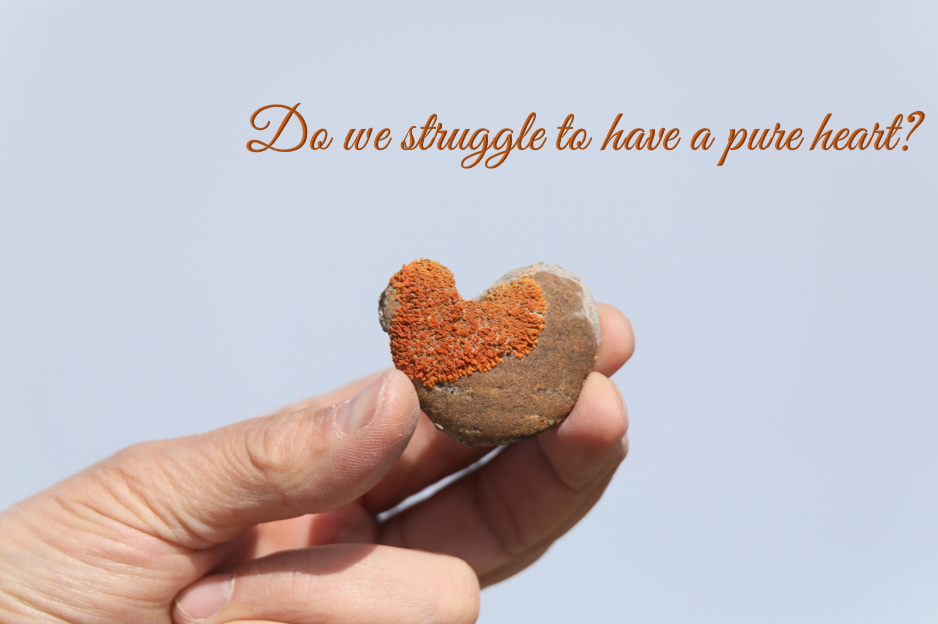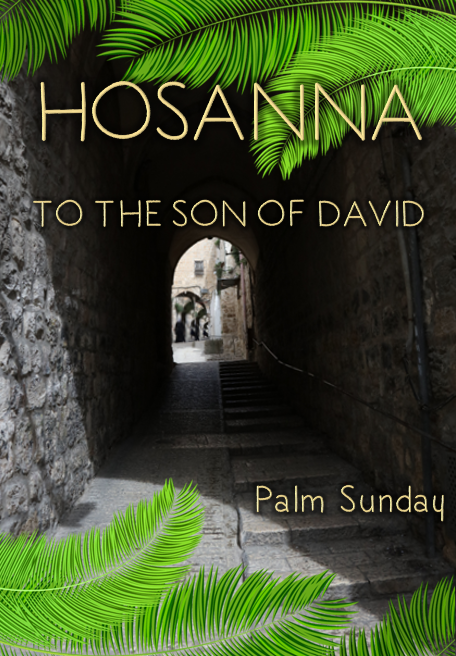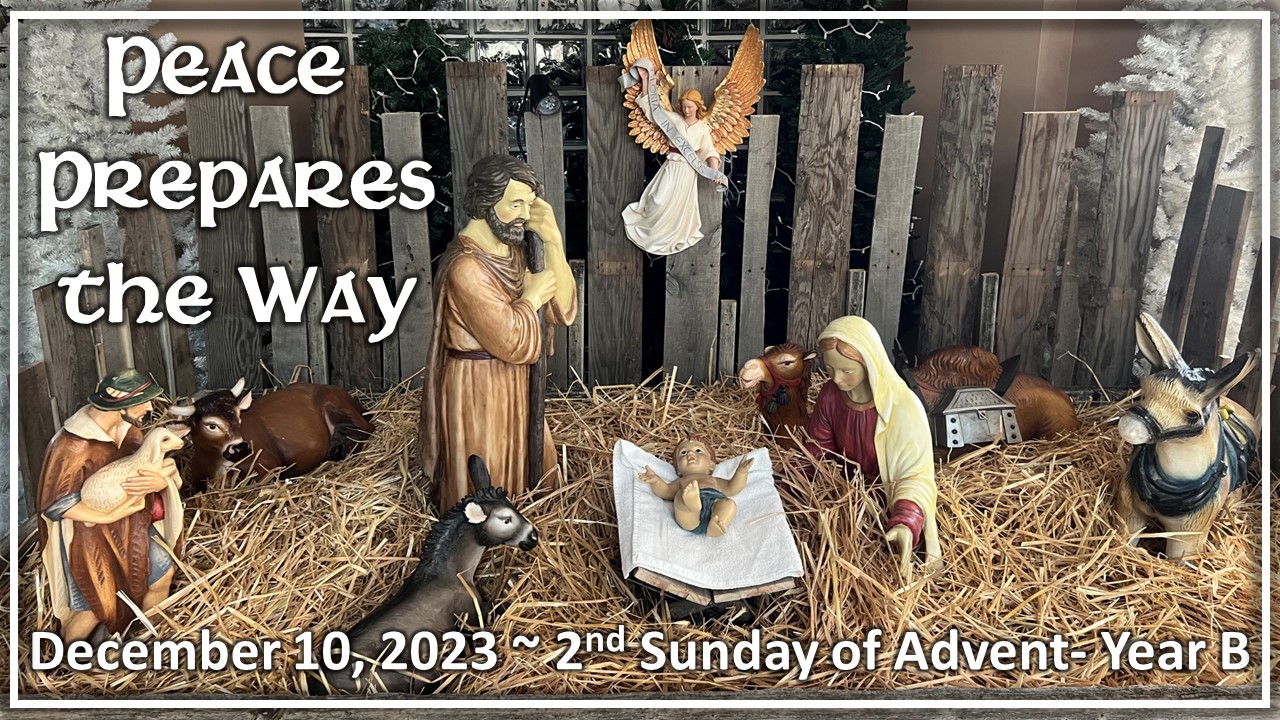
5th Sunday of Lent – Year C – April 3, 2022
IMPURITY OF OUR HEARTS
As we continue our Lenten journey by praying, fasting and almsgiving, Sacred Scripture keep inviting us to meditate on the love and mercy of God. This is our very common human nature that we love to point our fingers on other people, and we take great pleasure in pointing out the faults of others. This is contrary to our Christian faith and identity because we are called to love one another. St. Paul says “Therefore you have no excuse, whoever you are, when you judge others; for in passing judgment on another you condemn yourself, because you, the judge, are doing the very same things. You say, “We know that God’s judgment on those who do such things is in accordance with truth.” Do you imagine, whoever you are, that when you judge those who do such things and yet do them yourself, you will escape the judgment of God? Or do you despise the riches of his kindness and forbearance and patience? Do you not realize that God’s kindness is meant to lead you to repentance?” (Romans 2:1-5). Also please read Galatians 5:16-26.
Long, long ago, on the bank of a river, there lived a monk. Right across the street from him, lived a prostitute. The monk always hated the fact that he had to live next door to the prostitute. He took every opportunity to rebuke her about her profession. He would take every opportunity to show her what a horrible person she was. In his mind, he always compared himself with her and took big pride in the fact that he was accruing so much good Karma compared to her.
The prostitute was a humble girl. She always respected the monk. She tried not to talk back when he was yelling at her. She felt bad about the choice of profession she made but was not in a position to get out of it. She would always try to listen when the monk prayed, hoping that by listening to God’s name would help her wash off some of her sins.
The monk kept on his routine of massaging his own ego by comparing himself to the prostitute. Eventually he got so obsessed that he kept a jar with him and for every one person who visited prostitute, he dropped a pebble in the jar.
The prostitute kept her own routine. She was also watching what the monk was doing. She had a jar too. And every time the monk prayed, she put a pebble in the jar.
One day there was a big flood on the river. Both the monk and the prostitute were washed away and were dead. Upon their death, their souls stood in front of the God of death.
To everyone’s surprise, the God of death ordered the prostitute to go to heaven and the monk to go to hell. The monk could not believe this. “What an injustice. You can still find a jar in my house. I have kept count of how many times this prostitute sinned. How can she go to the heaven? There must be some mistake.”
The prostitute also added humbly “I think the monk is right. I don’t deserve to go the heaven. But he does. I have a jar where I kept count of the number of times, I heard his prayer. He prayed a lot. So I think he should go to heaven and I should go to hell.”
The God of death smiled and said “The judgement is correct. It does not matter what word is in your mouth. It matters only what is in your heart. The monk’s heart was filled with prostitute’s sins while he was saying his prayers. While the prostitute’s heart was filled with love of God while engaged in lifestyle of sins. The heart that has love of God goes to heaven and the heart that judges’ others and is filled with jealousy goes to hell.”
In the First Reading we hear that God wants us to return back from our former ways “Do not remember the former things, or consider the things of old”. God wants to restore everything to new which means he wants all of us to have pure heart. Although with the sin of Adam and Eve, our human nature is inclined to sin as it is written in the Book of Ecclesiastes “there is no one who is without sin” and sin has caused the death to enter into the world. Impurity of our hearts leads to other sins as Jesus says in the Gospel of St. Matthew “For out of the heart come evil intentions, murder, adultery, fornication, theft, false witness, slander. These are what defile a person, but to eat with unwashed hands does not defile.”
We all want to believe we have a pure heart, one that is entirely devoted to God. But humans are masters at self-deception. If our heart were impure, how would we know? This is important because we must first recognize how impure our hearts are before we can repent and pursue purity. The following are some signs that indicate that our hearts are impure.
- An ignorant heart is an impure heart:
Ignorance is bliss, so the old saying goes. But ignorance of God and sin reveals an impure heart. “Grace cannot reign where ignorance reigns, an ignorant man can have no love to God.” Remember that ignorance is a lack of knowledge. The more we see God, the more clearly, we see our sin. Isaiah’s first response upon seeing the glory of God was to confess his own sin(s) as well as his nation’s (Isaiah 6:1-5).
- A self-righteous heart is an impure heart:
Jesus did not come to call the righteous, but the sinner. We know this truth and yet shy away from having it applied to us. That is, unless we are speaking on the universal fact that “we are all sinners.” If someone points out a sin in your life, is your first response to repent, or to defend?
- A covetous heart is an impure heart:
St. Paul compares greediness to idolatry. Covetousness is the root of discontent, theft, treason, murder, perjury, necromancy, fraud and theft, bribery and injustice, idolatry, selfishness, and stinginess. It is also the cause of uncleanness and unprofitableness. There is a reason God includes “You shall not covet” as one of the 10 Commandments and it is a great deal more dangerous than our current Christian culture seems to appreciate.
- He who scoffs at purity has an impure heart.
Of course, a person who scoffs at purity has an impure heart.” Our minds may shift to the atheist characters in God’s Not Dead. But even Christians are guilty of mocking purity.
St. Paul in the Second Reading feels proud of himself for loosing everything for the sake of God “For his sake I have suffered the loss of things, and I regard them as rubbish, in order that I may gain Christ and be found in him, not having a righteousness of my own that comes from the law, but one that comes through faith in Christ, the righteousness from God based on faith”. That is only possible if we strive to have pure heart filled with the love of God.
A monk lived near the temple. In the house opposite lived a prostitute. Noticing the large number of men who visited her, the monk decided to speak to her. ‘You are a great sinner,’ he said sternly. ‘You reveal your lack of respect for God every day and every night. Do you never stop to think about what will happen to you after your death?’ The poor woman was very shaken by what the monk said. She prayed to God out of genuine repentance, begging His forgiveness. She also asked the Almighty to help her to find another means of earning her living.
She could find no other work and, after going hungry for a week, she returned to prostitution. Each time she gave her body to a stranger, she would pray to the Lord for forgiveness. Annoyed that his advice had no effect, the monk thought to himself: ‘From now on, I’m going to keep a count of the number of men who go into that house, until the day the sinner dies.’ And from that moment on, he did nothing but watch the comings and goings at the prostitute’s house, and for each man who went in, he added a stone to a pile of stones by his side. After some time, the monk again spoke to the prostitute and said: ‘You see that pile of stones? Each stone represents a mortal sin committed by you, despite all my warnings. I say to you once more: do not sin again!’
Seeing how her sins accumulated, the woman began to tremble. Returning home, she wept tears of real repentance and prayed to God: ‘O Lord, when will Your mercy free me from this wretched life?’ Her prayer was heard. That same day, the angel of death came to her house and carried her off. On God’s orders, the angel crossed the street and took the monk with him too.
The prostitute’s soul went straight up to Heaven, while the devils bore the monk down into Hell. They passed each other on the way, and when the monk saw what was happening, he cried out: ‘Is this Your justice, O Lord? I spent my whole life in devotion and poverty and now I am carried off into Hell, while that prostitute, who lived all her life steeped in sin, is borne aloft up to Heaven!’ Hearing this, one of the angels replied: poses are always just. You thought that God’s love meant judging the behaviour of your neighbour. While you filled your heart with the impurity of another’s sin, this woman prayed fervently day and night. Her soul is so light after all the tears she has shed that we can easily bear her up to Paradise. Your soul is so weighed down with stones it is too heavy to lift.
The Gospel of this Fifth Sunday of Lent is so beautiful, I really enjoy reading and rereading it. It presents the episode of the adulterous woman, highlighting the theme of the mercy of God, who never wants the sinner to die, but that the sinner converts and live. Also, it highlights the impurity of heart of other people who are one sided judges of the case. This is a beautiful story. First, we have Jesus alone on the mountain, praying. He was praying alone. Then he went back to the Temple, and all the people went to him. Jesus in the midst of the people. And then, at the end, they left him alone with the woman. Jesus in spite of people’s impurity of heart, writes on the ground which means he does not remember our sins but forgives our sins. He is like a friend in the story: A story tells those two friends were walking through the desert. At some point of the journey, they had an argument, and one friend slapped the other one in the face. The one who got slapped was hurt, but without saying anything, wrote in the sand “Today my best friend slapped me in the face”.
They kept on walking until they found an oasis, where they decided to take a bath. The one who had been slapped got stuck in the mire and started drowning, but the friend saved him. After he recovered from the near drowning, he wrote on a stone “Today my best friend saved my life”. The friend who had slapped and saved his best friend asked him, “After I hurt you, you wrote in the sand and now, you write on a stone, why?” The other friend replied “When someone hurts us, we should write it down in sand where winds of forgiveness can erase it away. But, when someone does something good for us, we must engrave it in stone where no wind can ever erase it.”
In the Gospel, among the people we see a variety of attitudes: there were all the people who went to him; he sat and began to teach them: the people who wanted to hear the words of Jesus, the people with open hearts, hungry for the word of God. There were others who did not hear anything, who could not hear anything; and there were those who brought along this woman: Listen, Master, this woman has done such and such … we must do what Moses commanded us to do with women like this.
This wicked intention was hidden behind the question that they asked Jesus: “What do you say about her?”. Jesus did not respond; he kept silent and made a mysterious gesture: he “bent down and wrote with his finger on the ground”. Perhaps he was drawing, some said that he wrote down the sins of the Pharisees… however, he was writing, as if he were elsewhere. In this way he helped everyone to calm down, not to act on the wave of impulsiveness, and to seek the justice of God. But those wicked men persisted and waited for him to answer. They seemed to thirst for blood. Then Jesus looked up and said: “Let him who is without sin among you be the first to throw a stone at her”.
This response confounded the accusers, disarming all of them in the true sense of the word: they all layed down their “weapons”, that is, the stones ready to be thrown, both the visible ones against the woman and those concealed against Jesus. While the Lord continued to write on the ground., to draw, I don’t know…. The accusers went away, one after the other, heads down, beginning with the eldest, most aware of not being without sin. How much good it does us to be aware that we too are sinners! When we speak ill of others – something we know well – how much good it will do us to have the courage to drop down the stones we have to throw at others, and to think a little about our own sins!
Only the woman and Jesus remained: misery and mercy. How often does this happen to us when we stop before the confessional, with shame, to show our misery and ask for forgiveness! “Woman where are they?”, Jesus said to her.
Dear brothers and sisters, that woman represents all of us. We are all sinners, meaning adulterers before God, betrayers of his fidelity. Her experience represents God’s will for each of us: not our condemnation but our salvation through Jesus. He is the grace which saves from sin and from death. On the ground, in the dust of which every human being is made (Gen 2:7), he wrote God’s sentence: “I want not that you die but that you live”. God does not nail us to our sin, he does not identify us by the evil we have committed. We have a name, and God does not identify this name with the sin we have committed. He wants to free us and wants that we too want it together with him. He wants us to be free to convert from evil to good, and this is possible – it is possible! – with his grace. “Blessed are the pure of heart” is the spirit we need to follow Jesus.
A man went to a Buddhist monastery for a silent retreat. After he finished, he felt better, calmer, stronger, but something was missing. The teacher said he could talk to one of the monks before he left. The man thought for a while, then asked: “How do you find peace?”
The monk said: “I say yes. To everything that happens, I say yes.”
When the man returned home, he was enlightened.
Other Sermons In This Series

Palm Sunday – Year C – April 10, 2022
April 08, 2022

24th Sunday in Ordinary Time Year C ~ September 11, 2022
September 08, 2022

2nd Sunday of Advent- Year B ~ December 10, 2023
December 07, 2023

